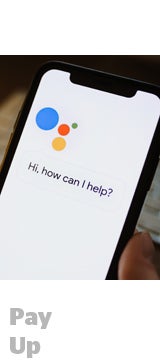Here’s today’s AdExchanger.com news round-up… Want it by email? Sign up here.
Paying For News
Google will license news content from publishers to populate its Google Assistant app and Android phones – so users can swipe from the homescreen to see news updates. The product will launch later this year with news companies from Germany, Brazil and Australia. Outlets in “half a dozen” additional countries are in discussions to join, Google’s Brad Bender tells The Wall Street Journal. Bender didn’t disclose terms of the deals, which vary depending on how much and what type of content (audio, video or text) is being licensed. “We are highly motivated to play our part alongside other companies, governments and civil-society groups to enable a better future for journalism,” he said.
The New Infomercial
Livestreamed online shopping, popular in Asia, is making its way to the United States – and beauty brands are rushing in. Estée Lauder hosted shopping streams for multiple brands in its portfolio. Actress Emilia Clarke demonstrated her skincare routine with a click-to-buy link back to the site. While shoppable streams have become more popular in the United States during the pandemic, they still don’t have huge reach because major platforms, such as Instagram Live, don’t offer shoppable ads, Glossy reports. Some brands, however, including Korean beauty brand Peach & Lily, promote products on IG Live and allow viewers to purchase through a swipe-up link on a separate Instagram Story. “It’s all really raw; very unproduced,” said Peach & Lily CEO Alicia Yoon. “And the idea is that consumers like this type of engaged shopping.”
Closing The ‘Book
The messaging app Viber, owned by the Japanese retail and technology conglomerate Rakuten, is severing all connections with Facebook and Instagram over what CEO Djamel Agaoua describes as the social platform’s “poor judgment in understanding its role in today’s world,” The Guardian reports. A score or so of brands have pledged not to advertise on Facebook during July or until the company addresses concerns about misinformation and hate speech on the platform. But Viber is disconnecting its “login with Facebook” button (a popular way to onboard users without going through the info submission process), won’t use the Facebook ad platform and even ditched its integrations with GIPHY, the meme-maker Facebook acquired last month.
But Wait, There’s More!
- Trump Campaign Weighs Alternatives To Big Social Platforms – WSJ
- Google Faces Several Class-Action Antitrust Lawsuits – Adweek
- Microsoft Introduces Differential Privacy Tech Co-Developed With Harvard – blog
- Instagram Expands Shopping To More Businesses, Creators – TechCrunch
- Dentsu Aegis Network Partners With TVision On Attention Planning – release
- Down The Rabbit Hole: How QAnon Conspiracies Thrive On Facebook – The Guardian
- Jellyfish Signs Tech Reseller Partnership With US Federal Agencies – release
- MRC Issues Update To Invalid Traffic Detection And Filtration Standards – release
- In Vintage TV Ads, A Curious Fountain Of Hope (And Cheese) – NYT
- IPG Mediabrands Introduces Media Responsibility Principles – release
You’re Hired!













